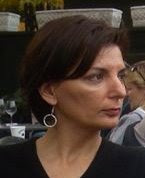Early in 2024 I decided to keep a running list of books, plays, and poetry that I was reading. Current reading seems to surface in most conversations, and I found that I couldn't always remember what I had just finished. I read a lot and across many topics.
As I'm new to Instagram and have discovered that most of the book people are sharing lists as a year end exercise, I thought I'd do the same here.
You will note that the bulk of my reading was Shakespeare. Yep, read all of his work in 2024. And you'll also note a great deal of poetry.
It feels like something is missing, but it's likely because I read many books at once and several have been started and remain stacked and waiting...
1. Twelfth Night by Shakespeare
2. Henry VI, Part One
3. Chip Wars by Chris Miller
4. Harriet the Spy by Louise Fitzhugh (A beloved book since childhood)
5. WH Auden’s Lectures on Shakespeare
6. Book of Longing by Leonard Cohen
7. Henry VI, Part Two
8. This is Shakespeare by Emma Smith
9. Asimov’s Guide to Shakespeare (A must!)
10. To the Lighthouse by Virginia Woolf
11. The World Doesn’t End by Charles Simic
12. Henry VI, Part Three
13. Good Will Come from the Sea by Christos Ikonomou
14. Comedy of Errors
15. Taming of the Shrew
16. A Meal in Winter by Hubert Mingarelli
17. Romeo and Juliet by Shakespeare
18. Richard III
19. Art + Faith by Makoto Fujimora
20. The Tragedy of Julius Caesar
21. The Two Gentlemen from Verona
22. Postcards from the Underworld by Sinan
23. King John
24. Richard II
25. Crossing the Unknown Sea by David Whyte
26. The Anchor's Long Chain by Yves Bonnefoy
27. Perreira Maintains by Antonio Tabucchi
28. A Writer’s Notebook by W.H. Auden
29. Hamlet
30. Pedro Paramo by Juan Rulfo
31. Blow Up: Stories by Julio Cortazar
32. The Hebrew Bible as Literature by Tod Linafelt
33. The Key Concepts of the Old Testament by Albert Gelin
34. The Boy, the Mole, the Fox, and the Horse by Charlie Mackesy
35. Brand New Ancients by Kate Tempest
36. The Rape of Lucrece
37. Shakespeare’s Sonnets (all)
38. Readings from the Book of Exile by Padraig o Tuama
39. Magnetic Field: The Marsden Poems by Simon Armitage
40. 4,000 Weeks by Oliver Burkeman
41. Dialogue by Robert McKee
42. The Miraculous Journey of Edward Tulane by Kate DiCamillo
43. Until August by Gabriel Garcia Marquez
44. Othello
45. Memoirs, Dreams, Reflections by Jung (still reading)
46. The Visitor by Maeve Brennan
47. The Swimmer by Edna O’Brien
48. Diaries of Exile by Yannis Ritsos
49. Love’s Labour’s Lost
50. Academy Street by Mary Costello
51. Pericles
52. The Source by Tara Swart
53. Cymbeline
54. Homeric Moments by Eva Brann
55. The History of Forgetting by Lawrence Raab
56. Falling Upward by Richard Rohr (my second but not last time to read this)
57. Much Ado About Nothing
58. Merchant of Venice
59. All’s Well That Ends Well
60. King Lear
61. A Lover’s Complaint
62. The Passionate Pilgrim
63. Lovers in the Museum by Isabelle Allende
64. As You Like It
65. Macbeth
66. The Hidden Parables by Todd Michael
67. The Twelve Conditions for a Miracle by Todd Michael (another reread)
68. Genesis - Jensen Bible Study
69. The Writers Guide to Crafting Stories for Children by Nancy Lamb
70. The Economics Book by DK Publishing
71. The Quiet in Me by Patrick Lane
72. The Ferryman (play) by Jen Butterworth
73. Charles Simic Selected Poems 1963 to 1983
74. Antony and Cleopatra
75. Let the Light Pour In by Lemn Sissay
76. Huckleberry Finn by Mark Twain
77. James by Percival Everett
78. Erasure by Percival Everett
79. Corilanius
80. All's Well That Ends Well
81. Carbon Reckoning by Sue Ransom (not yet published)
82. Measure for Measure by Shakespeare
83. The Amazing Adventures of Kavalier and Clay by Michael Chabon
84. Henry IV, Part One
85. The Secret History of the Zohar by Michael Berg
86. The Merry Wives of Windsor
87. Henry IV, Part Two
88. The Commune by Marios Chakkas
89. The Cabala by Thornton Wilder
90. The Abolition of Man by CS Lewis
91. The Monk in the White Robe by Ira
92. Moby Dick by Herman
93. Our Town by Thornton Wilder
94. Henry V
95. Henry VIII
96. J.B. by Archibald MacLeish
97. The Age of AI by Henry Kissinger and Eric Schmidt
98. Selected Poems Leonard Cohen
99. Confessions of a Sinner by St Augustine
100. The Bridge of San Luis Rey by Thornton Wilder
101. Inner Work by Robert Johnson
102. The Wind-Up Bird Chronicle by Haruki Murakami
103. Edward III
104. The Lonely Man of Faith by Joseph Soloveitchik
105. Timon of Athens
106. A Winter’s Tale
107. Paris by Julian Green
108. The Tempest
109. Christ, with Urban Fox by John Deane
110. Paul by NT Wright
111. Two Noble Kinsmen
112. Elon Musk by Walter Isaacson
113. The Answer is No by Fredrik Backman
114. Nausea by John Paul
115. Songs of Minyar the Damascene by Adonis
116. Power of Myth by Joseph Campbell
117. Short History of Myth by Karen Armstrong
118. The Runner by David Samuels
119. Consider This by Chuck Pahlaniuk
120. The Shortest Day by Colm
121. Faithful and Virtuous Night by Louise Glück
122. First Four Books of Poems by Louise Glück
123. Gravity and Center by Henri Cole
124. A Divine Language by Alec Wilkinson
125. Budapest by Victor Sebestyen
126. Titus Andronicus by Shakespeare
127. Venus and Adonis by Shakespeare
128. A Midsummer Night's Dream by Shakespeare
129. Troilus and Cressida by Shakespeare
130. The Phoenix and Turtle by Shakespeare
131. A Funeral Elegy by Shakespeare (I don't believe he wrote this)




